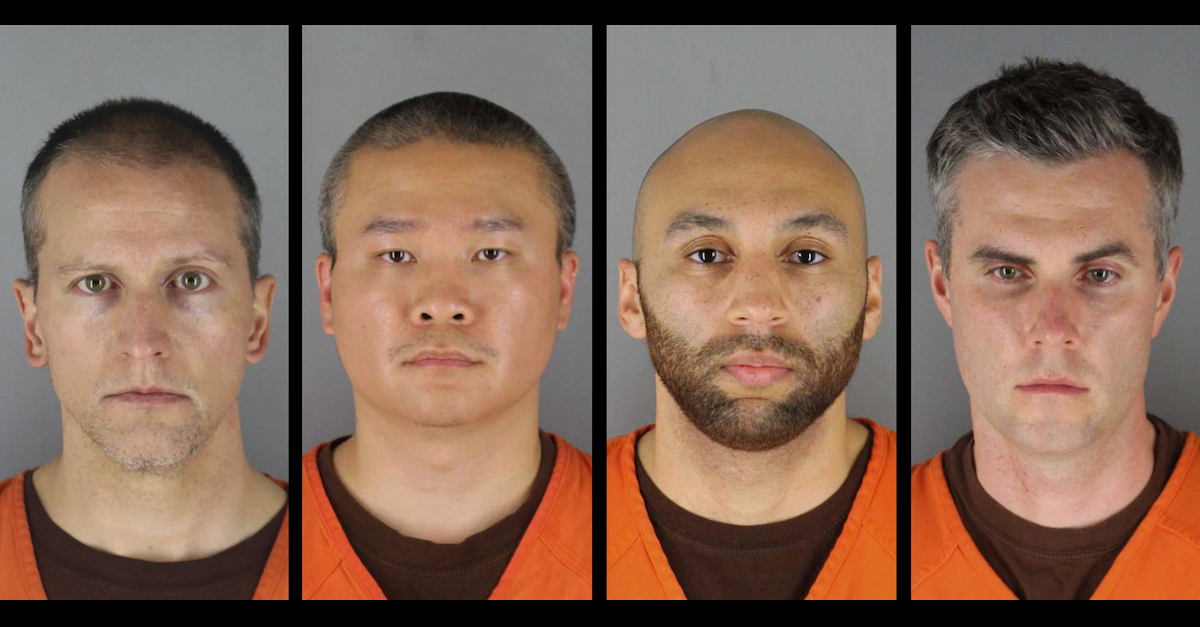
Derek Chauvin, Tou Thao, J. Alexander Kueng, and Thomas Kiernan Lane
A Minnesota judge on Friday doubled down on an earlier decision to broadcast the joint trial of the former Minneapolis police officers charged in the alleged murder of George Floyd.
Prosecutors led by state Attorney General Keith Ellison (DFL) had wanted to limit the broadcast, arguing Judge Peter Cahill’s November 4 order violated the “plain language of the Rules,” required testimony of most adult witnesses without consent, and similarly made available live audio feed of testimony by minor witnesses and Floyd’s family.
Cahill affirmed that order on Friday. In a memorandum, the judge repeated his earlier assertion that he was stepping outside of the regular boundaries for this because of the ongoing COVID-19 pandemic.
Normally, spectators, including journalists, were freely allowed to attend court, so restricting broadcasts would not impinge on the right to a public trial, or right of access to the press. These are not normal times, however, and current circumstances hinder the public’s access to the court. Couple with that with the intense public scrutiny of the case.
The instant situation, however, not only is abnormal–it is in fact unique. The COVID-19 pandemic persists and requires social distancing, especially during jury trials.
…
It is expected that, even with some overflow courts, the demand by family members, the public, and the press to attend the joint trial will outstrip the court’s ability to provide meaningful access.
The four defendants were fired from the Minneapolis Police Department after footage of Floyd’s arrest when viral and was followed by nationwide protests. As seen on video, Derek Chauvin, who faces charges including second-degree murder, was seen kneeling on Floyd’s neck. Co-defendants J. Alexander Kueng and Thomas Kiernan Lane were helping keep Floyd down. Tou Thao stood between his fellow officers and angry bystanders, who pointed out that Floyd was becoming unresponsive.
On Friday, Cahill said courts were just not in the position to really take people into overflow courtrooms, especially in this high-profile case. He cited the high-profile trials of former Minneapolis police officer Mohamed Noor and former Hollywood producer Harvey Weinstein.
“The State’s suggestion that the Court use overflow courtrooms is itself an admission that cameras in the courtroom are sometimes necessary to broadcast a trial contrary to Rule 4.02(d),” he wrote. “The State merely wants a limited audience. The Court, on the other hand, is concerned that the more the audience is limited, especially in a trial with international interest, the more likely that the constitutional rights associated with a public trial are violated.”
[Mugshots via Hennepin County]